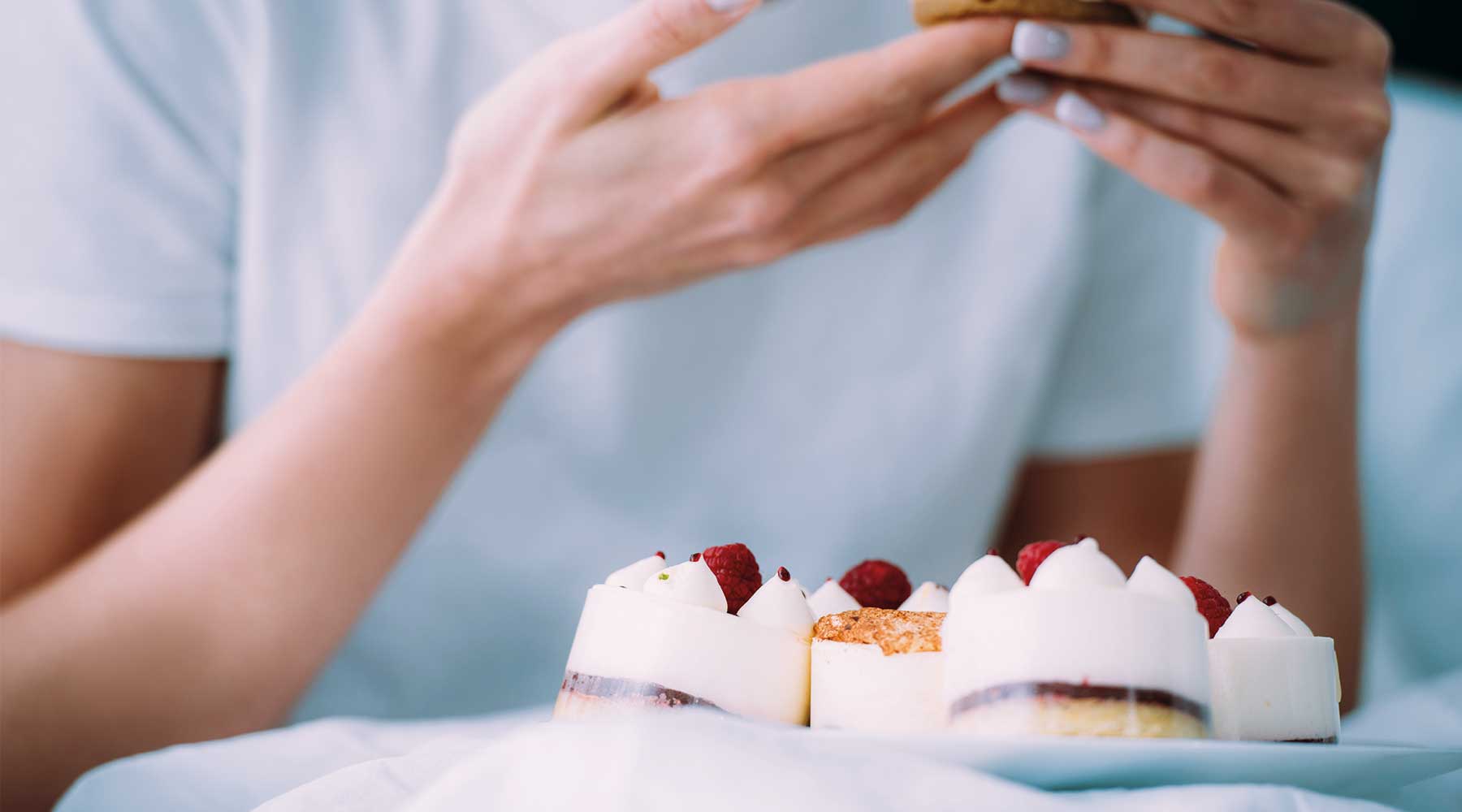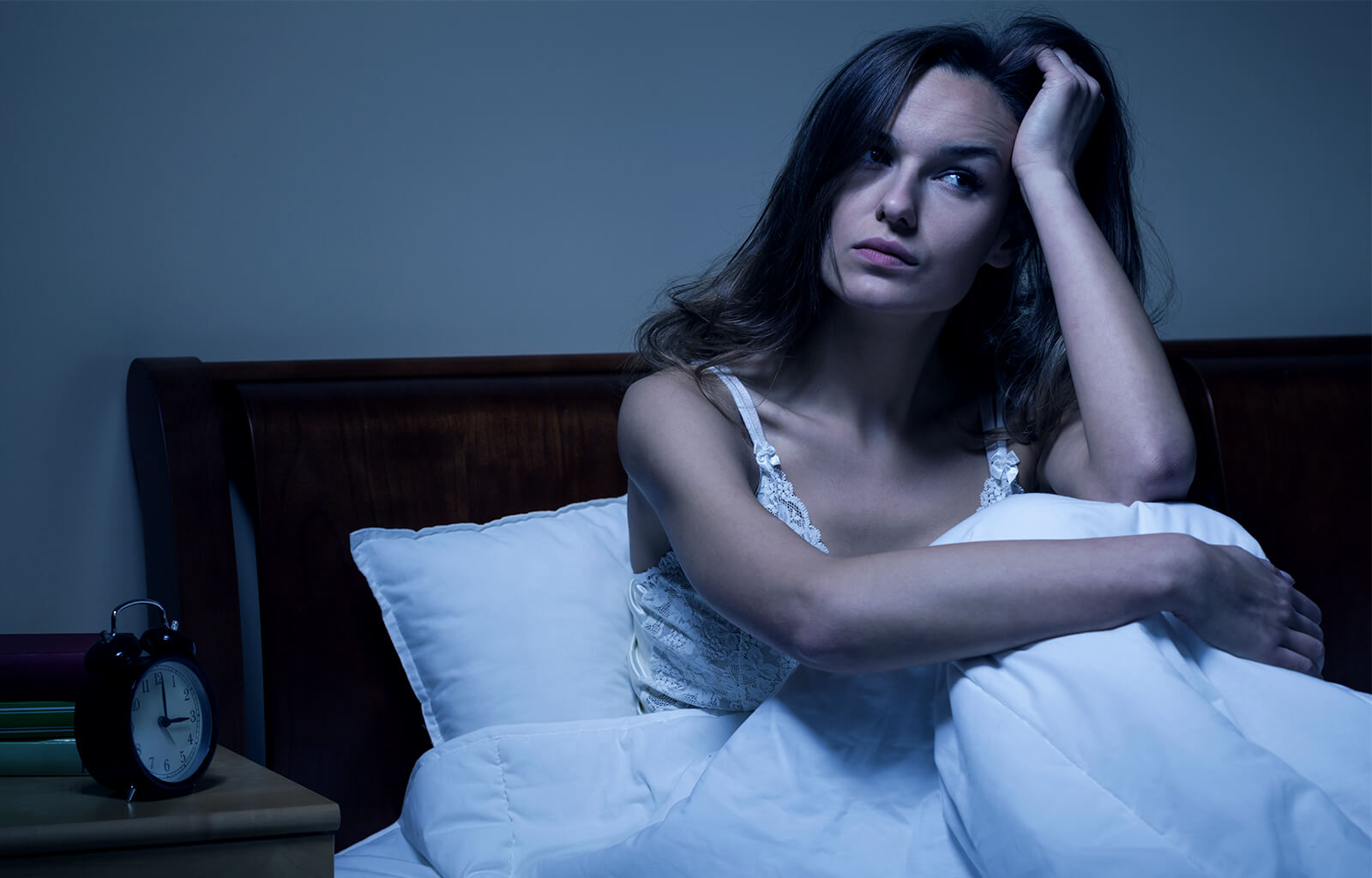
Does sugar harm to sleep?
Sugar is a natural part of our daily diet. However, too much sugar is harmful to our health and can also disrupt sleep. Here, we explain how sugar affects sleep and why you should avoid that extra portion of sweets in the evening.
Table of contents
- What is sugar?
- The effect of sugar
- Does sugar disrupt sleep?
- The right diet in the evening
- Conclusion
1. What exactly is sugar?

Sugar belongs to the nutrient group of carbohydrates and is found in numerous foods in our daily diet. A basic distinction is made between so-called simple sugars (monosaccharides) and complex sugars (polysaccharides). Simple sugars such as fructose (fruit sugar) and glucose (grape sugar) can combine with each other to form the basis for disaccharides or complex sugars such as sucrose, the familiar white table sugar.
2. The effect of sugar
As soon as we eat something, numerous digestive processes begin in our body, breaking down the sugar contained in food into its individual components. Glucose and fructose then enter the bloodstream via the intestines, initially causing blood sugar levels to rise. This activates the production of the hormone insulin, which helps transport the sugar molecules more quickly through the bloodstream to the cells and organs. There, the absorbed glucose is converted into energy or stored as fat, while fructose is largely processed in our liver.

The glycemic index (GI) indicates how quickly carbohydrates in a food cause blood sugar levels to rise and is particularly high for foods with a high sugar content. Sugar is therefore considered an effective and rapid energy source that can support the performance of the body and brain in the short term. However, the rapid and high rise is followed by an equally rapid drop in blood sugar levels, which can also have negative effects on health. The high blood sugar level and the resulting increased release of insulin also influences the feeling of hunger and satiety, which can increase appetite or lead to cravings. Too much sugar can lead to, among other things, diabetes, obesity and Cardiovascular diseases and also significantly impair sleep.
Does sugar disrupt sleep?
Sugar causes blood sugar levels to rise rapidly, providing our body with readily available energy. This increases performance and makes us more alert, making it harder for us to relax and fall asleep in the evening. However, after a few hours, blood sugar levels drop quickly again, causing us to wake up more easily and more frequently.
In addition, according to various studies, the Sleep hormone melatonin plays an important role in regulating blood sugar levels. The increased melatonin level in the evening inhibits insulin secretion, causing the absorbed glucose to remain in the bloodstream longer and be broken down more slowly. This also slows energy release, and wakefulness occurs more frequently during sleep because blood sugar levels fluctuate.
In this way, sleep is repeatedly interrupted and the regenerative deep sleep is disrupted, leaving us feeling less rested the next morning. A 2016 study also showed that increased sugar consumption led to significantly less restful and more restless sleep and shortened the deep sleep phase of the subjects.
At the same time, however, a lack of sleep also impairs the function of hunger and satiety hormones, resulting in a stronger feeling of hunger during the day. Studies show that people tend to eat more, more frequently, and, above all, eat more sugary and fatty foods during the day if they haven't gotten enough sleep the night before. So be careful: The more sugar we consume, the worse our sleep, and the worse our sleep, the more our body craves sugar and food energy.
4. The right diet in the evening
Basically, you should, of course, maintain a balanced, healthy diet throughout the day and consume sugary foods in moderation. You can find more information on sleep and nutrition here. here.
To avoid disturbing your sleep, you should follow these tips in the evening:
➨ Your last, rather light meal should be eaten 2-3 hours before going to bed and should not be too heavy so that the digestive processes do not disturb your sleep.
➨ Avoid foods that are high in sugar and fat in the evening and consume them during the day so that your blood sugar level does not rise before going to bed.
➨ If you do consume a lot of sugar at once, try combining it with fiber-rich foods. These slow the rise of blood sugar after eating.
However, there are numerous nutrients and foods that, unlike sugar, can have a positive effect on sleep. You can read more about this in these articles:
The top 8 sources of melatonin
5. Conclusion
-
Sugar is a carbohydrate that provides the body with quick energy.
-
Increased sugar consumption before bedtime can disrupt sleep and shorten deep sleep phases, making us feel less rested and lacking energy.
-
Combine sugary foods with foods rich in fiber and opt for a light, low-sugar meal in the evening, 2-3 hours before going to bed.
Best wishes and see you soon!



Leave a comment
This site is protected by hCaptcha and the hCaptcha Privacy Policy and Terms of Service apply.